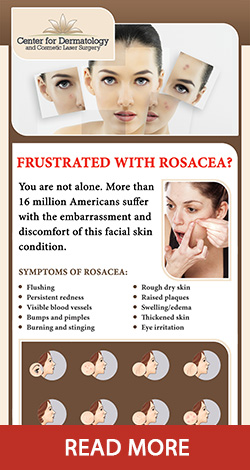Misconceptions And Truths About Acne: Debunking Common Misconceptions
Misconceptions And Truths About Acne: Debunking Common Misconceptions
Blog Article
Short Article Writer-Upton Powers
You could think that indulging in chocolate or oily foods is the root cause of your acne, yet that's simply among several myths swirling around this typical skin disease. Actually, acne mainly comes from blocked hair roots, not your last dessert. Misconceptions like these can lead you to take on inadequate skin care practices that might even worsen your circumstance. As you browse the realities behind acne, you'll find understandings that could change your approach to skin care and help you attain clearer skin. So, what really lies underneath the surface?
Common Myths Regarding Acne
When it comes to acne, many individuals believe in common misconceptions that can result in confusion and frustration. One prevalent misconception is that consuming delicious chocolate or greasy foods causes acne. While diet regimen can affect skin wellness, the direct link between certain foods and acne isn't as well-defined as numerous assume.
An additional usual mistaken belief is that you must scrub your face strongly to improve breakouts. Actually, aggressive rubbing can irritate your skin and intensify acne.
You could likewise believe that acne only affects teens, but grownups can experience it as well, commonly due to hormonal modifications or stress. facial microneedling believe that sun tanning can clear acne, however sunlight exposure can really bring about skin damage and intensify outbreaks over time.
Last but not least, lots of believe that using harsh products will certainly eliminate acne quickly. However, these items can strip your skin of its all-natural oils, resulting in enhanced irritability and more outbreaks.
Scientific Information Behind Acne
Understanding the scientific realities behind acne can encourage you to tackle this common skin problem better.
Acne happens when hair roots come to be obstructed with oil, dead skin cells, and germs. This process usually starts with an overproduction of sebum, the oil your skin naturally generates. Hormonal changes, specifically during adolescence or menstruation, can cause this excess oil.
Bacteria known as Propionibacterium acnes prosper in these stopped up pores, leading to inflammation. When your body immune system reacts, it can trigger redness and swelling, resulting in those troublesome pimples or cysts.
Genes likewise contribute; if your parents had acne, you could be more susceptible to it.
Diet plan and stress and anxiety degrees can affect acne as well, but research is still advancing in these locations. While indulging in oily foods will not directly cause breakouts, a balanced diet can support your skin health.
Likewise, taking https://www.prevention.com/beauty/a36534312/kelly-osbourne-plastic-surgery/ of stress and anxiety can decrease hormonal changes that may worsen acne.
Tips for Handling Acne
Managing acne successfully calls for a mix of daily skin care routines and lifestyle adjustments. Begin by developing a consistent skincare regimen. Clean your face twice a day with a gentle, non-comedogenic cleanser to remove dust and excess oil. Avoid rubbing as well hard, as this can aggravate your skin and worsen acne.
Next off, incorporate items having salicylic acid or benzoyl peroxide to aid prevent breakouts. Always follow up with a light-weight, oil-free cream to keep your skin hydrated. Don't neglect sunscreen; opt for non-comedogenic alternatives to safeguard your skin from UV damages without obstructing pores.
Past skin care, take notice of your diet. Limit sugary and oily foods, and concentrate on fruits, vegetables, and whole grains. Staying moisturized is crucial, so beverage plenty of water throughout the day.
Furthermore, handle anxiety through activities like yoga, meditation, or workout, as stress and anxiety can trigger outbreaks.
Lastly, stay https://coldlasertherapy55554.mybuzzblog.com/11873614/top-benefits-of-microneedling-for-your-skin of selecting or standing out acnes. This can cause scarring and additional swelling. If your acne persists, consult a skin doctor for customized treatment options.
Conclusion
To conclude, it's important to separate reality from fiction when it involves acne. By unmasking common misconceptions, you can much better understand your skin and make notified selections for your skin care routine. So, why continue to believe in out-of-date concepts when the fact can empower you? Welcome healthier routines, concentrate on mild cleansing, and bear in mind that managing acne is a journey. With the right knowledge, you're one action more detailed to clearer, healthier skin.
